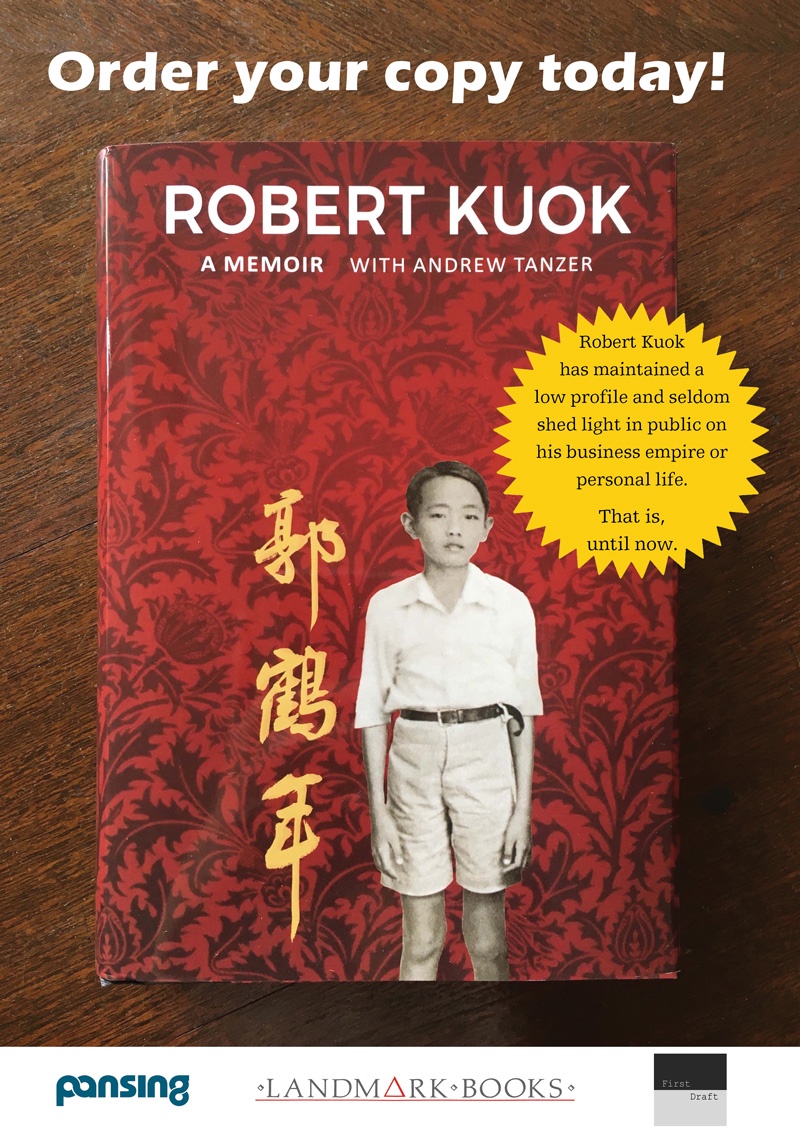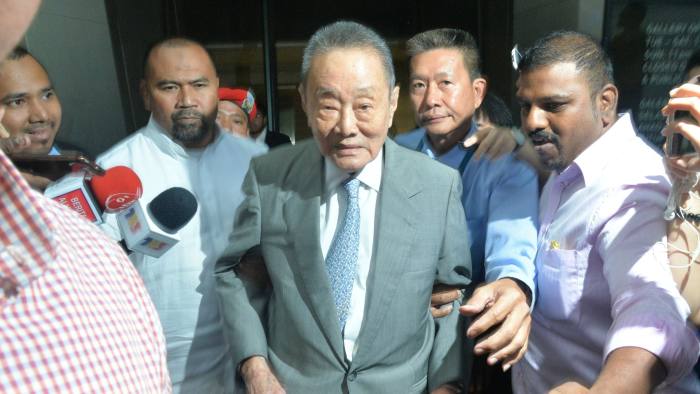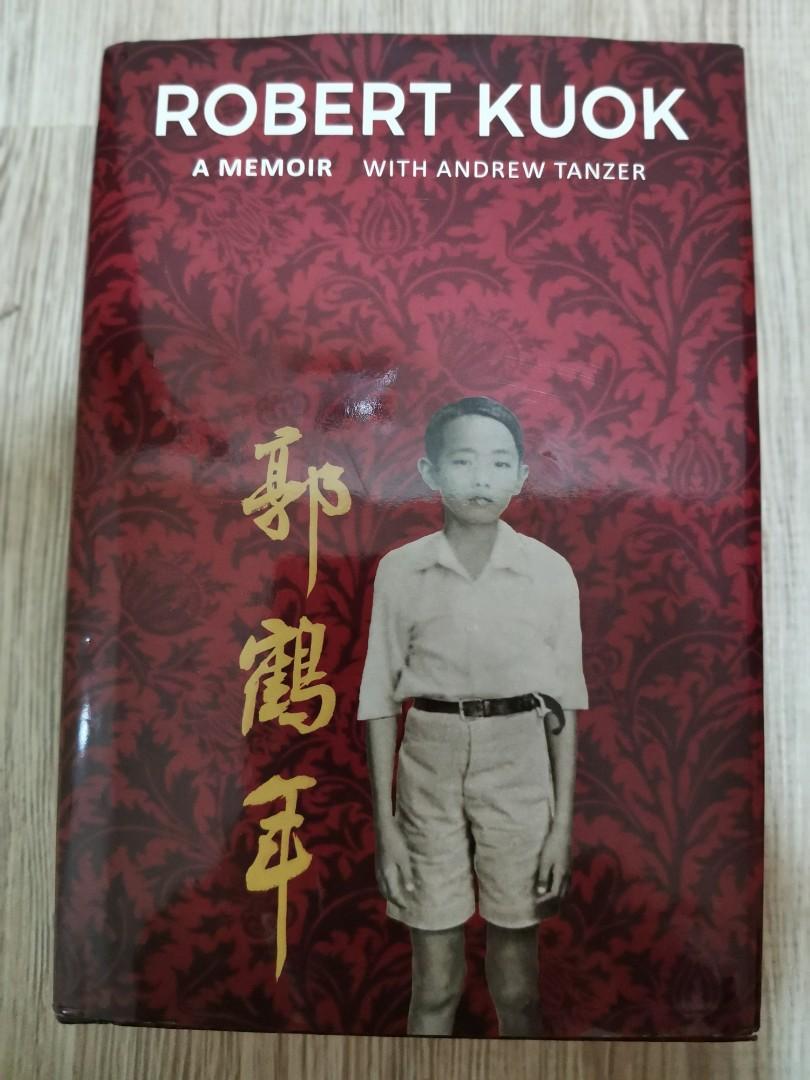Robert Kuok A Memoir
Memoir Antara 1998 dan 2000, Kuan Yew menerbitkan memoir dua jilid. The Singapore Story (1998) merangkumi pandangannya tentang sejarah Singapura sehinggalah pemisahannya dari Malaysia pada tahun 1965, dan From The Third World To First: The Singapore Story (2000) menceritakan kisahnya mengenai transformasi Singapura menjadi sebuah negara maju.
Robert Kuok is the richest man in Malaysia. He owns Kuok group, which has interest in hotels, real estate and commodities. He founded internationally renowned Shangri-La Hotels in Singapore in 1971. Kuok was born on 6 October 1923, in Johor Bahru to a Malaysian Chinese family. Kuok's father Kuok Keng Kang arrived in Malaya from Fujian, China, at the beginning of the 20th century, and Robert was the youngest of three brothers born to Kuok Keng Kang and Robert's mother Zheng Ge Ru.He grew up speaking his parents' Fuzhou dialect, English and Japanese during Japan's wartime.
I rarely take notes on memoirs, but this one was special. Great admiration for this Malaysian tycoon whose deeply self-reflective memoir shows the kind of mountains that can be moved when one upholds high standards of morality in the most tumultuous of times. I recommend borrowing this book from the library. It's a fairly thick read, but so very absorbing. Sharing some of my takeaways below -
Choice of business: Kuok learnt from the Japanese that you should focus on products for which there are large, established markets, and for which demand is uniform and stable. Your products should not be subject to frequent changes of taste, like, say, plastic pails, where one year the demand is for one colour and shape and the next for another. That’s why the Japanese approached Kuok for sugar and, later, flour milling - there’s virtually no variation. In contrast, running a plywood mill was one of the most excruciating experiences in Kuok’s life - there’s always unevenness in the plant and you can’t maximise efficiency, no matter how hard you try.

Leadership in business: Kuok believes that all business on earth is management. He reminds us that true leaders govern to raise people to greater heights, not to greedily seek fame/glory/money.
Overcoming hardship with morality: Kuok dealt with the realities before him by speaking his mind and deeply reflecting on his own behaviour and that of others around him - his mother’s high moral standards had a deep influence on him. Even as the British and Japanese left as colonial rulers, Kuok’s business had to deal with discrimination. He would refuse to deal with hard-nosed British who could not understand the give-and-take required in Asian culture and business, and he would also tell off his Japanese bosses who treated non-Japanese locals terribly.

Menssana in corpore sano - Latin for “a healthy mind is a healthy body”.

Business and politics: Although Kuok tried to steer clear of politics, he quickly realised how intertwined it was with business and had to learn to navigate and contribute to politics. As countries like Malaysia and Indonesia gained independence, Kuok often had to relent to local politics in order to enter different markets to run his business.
Business priorities: Kuok laid down his priorities for the business in this order - look after employees first, customers second, then shareholders.

Negotiation style: Kuok would often send out his colleagues to negotiate, like battering rams, and advised them to list down whatever points they couldn’t proceed on during the 2 day negotiation. At the end, they were to give him the list of points where they were bogged down. When they were down to 20 sticking points, Kuok would step in to negotiate and clear the matters within 30 min.
Leaping into new businesses: To diversify from commodity trading, Kuok went into the hotel business even though he knew nothing about hotel management. He learnt in school and life that everything in life is simple, as long as you understand the mind of the customer. Everything else is gimmick. Kuok’s Shangri-La makes money without cutting the throats of customers with ornate or fancy things like gold taps. The owners are very hands-on.
People strategy: Kuok looks for 3 things in staff - talent, integrity and stamina for hard work. He explains that he needs honest, hardworking and intelligent people (not exceptional students). He also looks closely at traits like vanity because the hardest thing for some to do is to admit fault - humility is a must.
Learning style: Robert Kuok learnt his trade by experimenting. Nobody spoon fed him. He would go to London to learn how to manage raw sugar costs by immersing himself, watching how the British traded, asking questions about the mechanics to figure out how sugar futures worked, and making small bets. When Kuok is in doubt on a project, he often employs the tactic of chatting with someone cleverer than himself and offering a joint venture deal. If the person says, “Oh my god, it’s an awful thing”, then you know it’s poison and you’re able to see the deal clearly through other people’s eyes.
Economic philosophy: In Kuok’s view, capitalism is the best way to run a country but must be mixed with spoonfuls of communism (i.e. social institutions) that create a more compassionate society. He believes businesses should be approached with humility whereas he finds that Americans tend to approach it with arrogance and roughness in order to survive in their hostile world - this doesn’t appeal to Kuok.
Political observations: He observes that while China is good at removing bad eggs amongst government officials (unlike SEA where they tend to get promoted), China’s greatest challenge lies in the restoration of morals and establishment of the rule of law, because it's hard for the communist party to accept that the rule of law is above them.
Political advice: In a brainstorming seminar in Jakarta, sponsored by the Center for Strategic and International Studies, Kuok implored Indonesia to harness the drive of the Overseas Chinese to economically build up the country instead of consorting with western multinationals who succeed by bulldozing their prices and practices. But he also urged them to create a strong watchdog with teeth to control errant crooks amongst them, an advice that the Indonesians did not heed (but Singapore did, under LKY).
Robert Kuok Family Members
Health: Kuok quit smoking once he realised the effect it had on his throat and his tendency to fall sick because of his habit. He shares how he would distributes cigarettes during his meetings in China but avoid taking one himself. He would sleep by 9pm and shares that he lives simply by cycling every weekday morning to an Indian vegetarian restaurant for a simple vegetarian pancake. His advice is to cultivate the healthy value of curbing greed. While greed fuels capitalism by propelling you to move forward, it destroys the earth and the people living on it when it goes unchecked.
